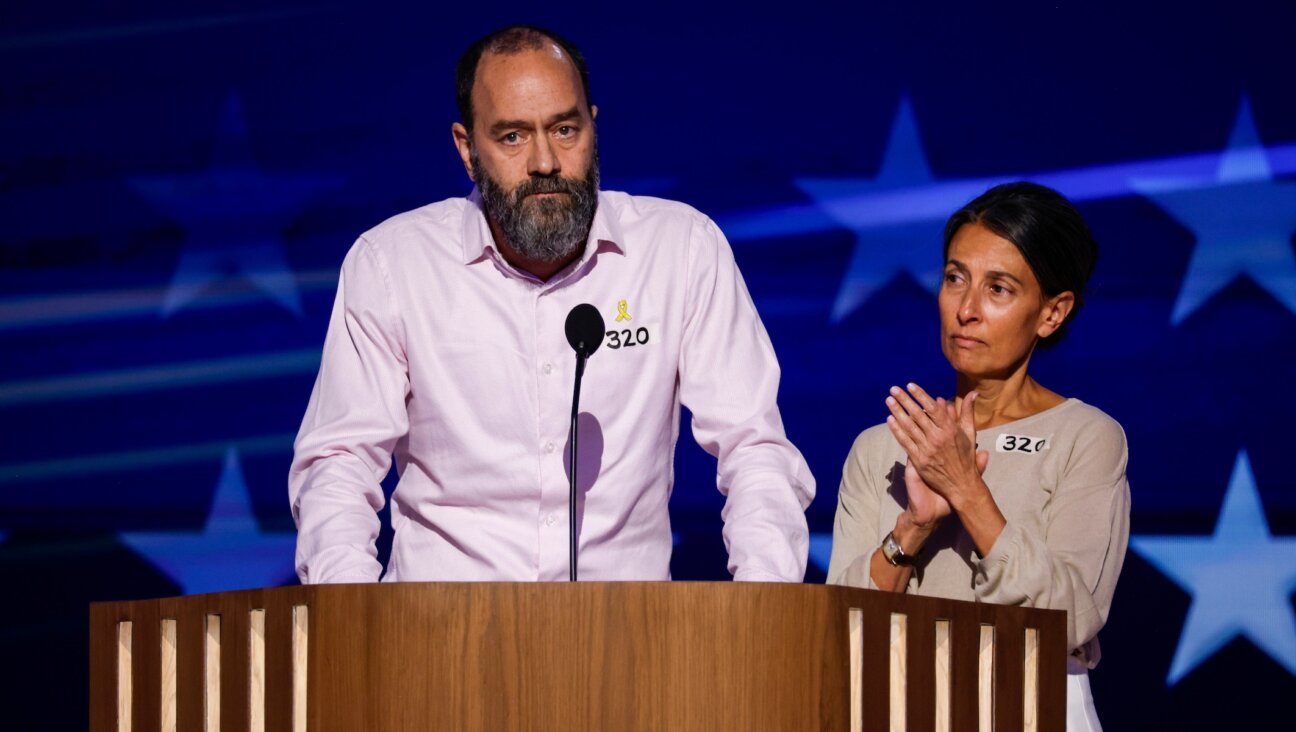Religious Rights on Trial as Circumcision Case Reaches Oregon’s High Court
The highest-level case in American history involving the right to circumcision is slated to be heard this fall, when the Oregon Supreme Court rules on whether a father can have his 12-year-old son undergo the procedure.
The case — which could affect the ability of parents to make religiously motivated decisions for their children — is bound up with a bitter custody dispute between a divorced Oregon couple. It pits James Boldt, the custodial parent and a recent convert to Judaism, against Lia Boldt, who argues that the boy is afraid to tell her ex-husband that he does not want to be circumcised. She says that the boy would be physically and psychologically harmed by the procedure.
The acceptance of the case by Oregon’s highest court is surprising, because judges generally grant a wide degree of latitude to custodial parents — so much so, in fact, that the state’s Court of Appeals rejected the mother’s case without issuing an opinion. If the Oregon Supreme Court decides to review the merits of the father’s plan for circumcision, it will almost inevitably weigh in on two related issues: the right of custodial parents to guide their children’s religious upbringings, and the weight that religious considerations should be given when considering the welfare of a child.
“Are parents only authorized to make decisions that a secular decision-maker would make?” asked Marc Stern, general counsel for the American Jewish Congress, which is filing a friend-of-the-court brief in support of James Boldt. “We have to win this case, and win it big, in my view” Stern said.
“Our position is that the custodial parent can take into account religious interests in determining what’s in the interest of the child,” Stern added.
Historically, the American courts have given parents wide latitude in making decisions rooted in religious belief. In one seminal 1972 case, Wisconsin v. Yoder, the Supreme Court upheld the right of Amish parents to remove their children from public school after the eighth grade, despite a law mandating education through age 16. At the same time, many judges have stepped in to protect children from health risks posed by religiously motivated parental decisions in the contexts of blood transfusions and medical treatment.
Given the high stakes of the Boldt case, which is scheduled to be heard sometime this fall, advocates on both sides of the dispute are weighing in.
“Our position is that you do not cut off healthy tissue from a child,” said John Geisheker, executive director and general counsel of Doctors Opposing Circumcision, which is filing a friend of the court brief on behalf of Lia Boldt. “The boy has a right to be secure in his own body. Parents can believe in anything they like, but when it comes to religious practices, those cannot endanger the child in any way.”
Stern said he is in the process of drafting the brief for AJCongress and expects several other major Jewish organizations to sign on.
One notable exception is the Anti-Defamation League, which has been prominent in a number of church-state cases. According to a spokeswoman, Myrna Shinbaum, the ADL is not taking a position in the matter, as it is “essentially a custody dispute.”
If some are reluctant to weigh in on Boldt, it may be because of a complicating factor at the heart of the case: the boy himself. Called “Jimmy” by his father and “Mischa” by his mother, and bounced from her home to his in the wake of an ongoing custody battle, he has aged three years as the circumcision case has wound its way to the Oregon Supreme Court. While both sides in the dispute claim to have the boy’s support, his own testimony has yet to be requested by the courts.
Since the 1950s, the Supreme Court, in the context of cases involving both contraception and abortion, has generally expanded the rights of teenagers when it comes to their own bodies. Harvard Law School professor Martha Minow, an expert in family law and in cases involving religious rights, would like to see that precedent extended in Oregon.
“If the child at issue is 12 years old, a court would rightly consider that individual’s own view — about religion and about the procedure at issue — perhaps not as the ultimate basis for the decision but as a vital input,” Minow wrote in an e-mail to the Forward. “Legally, morally, and practically, the view of an emerging adolescent would be highly germane here just as it would for a medical decision facing a pregnant teen.”
A message from our Publisher & CEO Rachel Fishman Feddersen

I hope you appreciated this article. Before you go, I’d like to ask you to please support the Forward’s award-winning, nonprofit journalism so that we can be prepared for whatever news 2025 brings.
At a time when other newsrooms are closing or cutting back, the Forward has removed its paywall and invested additional resources to report on the ground from Israel and around the U.S. on the impact of the war, rising antisemitism and polarized discourse.
Readers like you make it all possible. Support our work by becoming a Forward Member and connect with our journalism and your community.
— Rachel Fishman Feddersen, Publisher and CEO





















